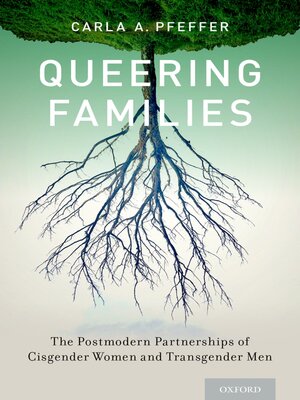Queering Families
ebook ∣ The Postmodern Partnerships of Cisgender Women and Transgender Men · Sexuality, Identity, and Society
By Carla A. Pfeffer

Sign up to save your library
With an OverDrive account, you can save your favorite libraries for at-a-glance information about availability. Find out more about OverDrive accounts.
Find this title in Libby, the library reading app by OverDrive.



Search for a digital library with this title
Title found at these libraries:
| Library Name | Distance |
|---|---|
| Loading... |
Ozzie and Harriet, move over. A new couple is moving into the neighborhood. In the postmodern era, advances in medical technologies allow some individuals categorized female at birth to live in accordance with their gender identities, as men. While a growing body of literature on transgender men's experiences has come to the forefront, relatively little exists to document the experiences of their partners. In Queering Families: The Postmodern Partnerships of Cisgender Women and Transgender Men, Carla A. Pfeffer brings these experiences to light through interviews with the group most likely to partner and form families with transgender men: non-transgender (cisgender) women. Drawing upon in-depth interviews with fifty cisgender women partners of transgender men from across the United States and Canada, Pfeffer details the experiences of a community that often seems unremarkable and ordinary on its surface. Cisgender women who partner with transgender men who are socially "read" as male are often (mis)perceived as part of a heterosexual couple or family. Yet not all cisgender women who partner with transgender men are comfortable with this invisible existence and comfortable normativity. Instead, many of the cisgender women Pfeffer interviews hold deeply-valued queer identities that may be erased in their partnerships with transgender men. Queering Families details the struggles and strengths of these postmodern "Harriets" as they work to build identities, partnerships, families, and communities. Pfeffer's interviewees discuss the implications of visibility and invisibilty in their everyday lives as they face barriers or pathways to legal and social inclusion. They carve out new lexicons for partners' bodies and their own sexualities, transformed through gender-affirming hormones and surgeries. They plan and construct families with and without children, some drawing upon alternative reproductive technologies to bear the biological offspring of their transgender partners. With remarkable depth and insight, Queering Families explores a shifting social landscape that challenges the very notion of what constitutes a "same-sex" or an "opposite-sex" relationship, marriage, or family.







